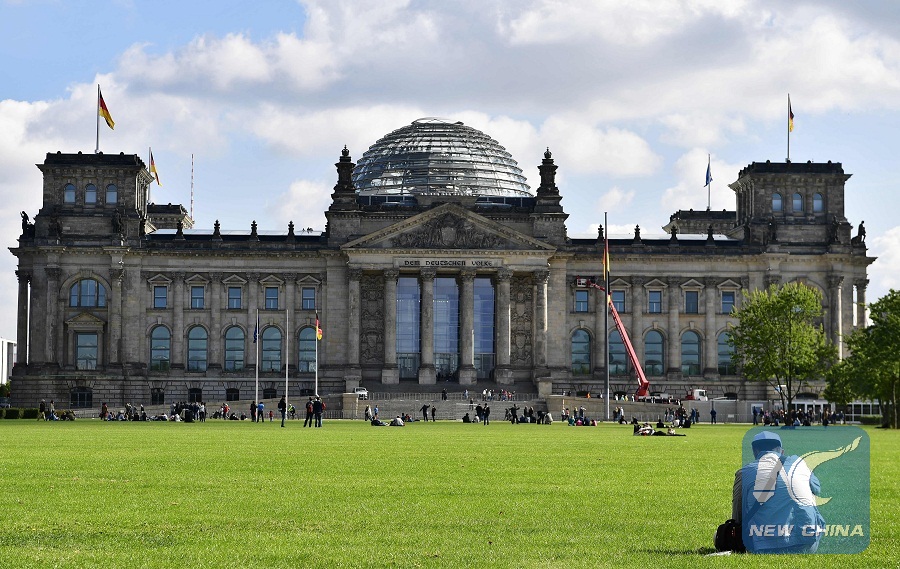
The Reichstag building, seat of the German lower house of Parliament Bundestag, is pictured in Berlin on Sept. 19, 2017, 5 days before Germans head to the polls. (AFP/Tobias SCHWARZ)
BERLIN, Sept. 26 (Xinhua) -- The Free Democratic Party (FDP) wants to re-structure the seating arrangements of the new Federal Parliament (Bundestag) to prevent being positioned next to the Alternative for Germany (AfD) party, German media reported on Tuesday.
FDP aims to address the current so-called "council of elders" responsible for the Federal Parliament's seating to request that the party's faction receive a new position between the Christian Democratic Union (CSU)/ Christian Social Union (CSU) and Green party (Gruene) factions. A "Jamaica" coalition between these three parties is widely held to be the likeliest next coalition to govern Germany.
The board of the FDP described such a new arrangement as a welcome symbol for the party's prospective cooperation with the Greens after trading barbs during the election campaign. FDP leader Christian Lindner has also referred to his party's positioning in the "middle of the Federal Parliament" as a metaphor for what he considers to be its centrist credentials.
The question of where AfD delegates should take their seats after entering parliament for the first time has become a source of heated debate in Germany. Different sections of the Federal Parliament are often seen to reflect political values, with the Left party (Linke) faction traditionally occupying the far-left corner of the plenary room for example.
Several parties have announced their opposition to granting the AfD a seat in the middle of the room because they do not consider the right-wing populist party to be representative of the center ground of German politics. Questions also remain as to whether the AfD will form a unified parliamentary faction at all after its co-leader Frauke Petry surprisingly declared that she would not join any such group.
The new parliament's "council of elders" must be formed within 30 days of the German election, leaving its members until October 24 to agree on a seating and room order.

